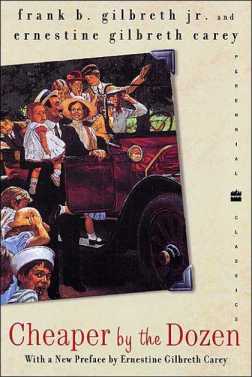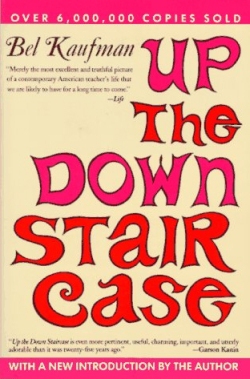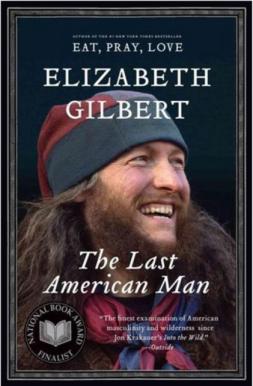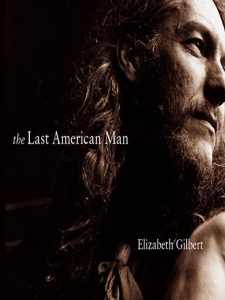Hi y’all. It’s time for an overdue report on what I’ve been reading these days. Being a bookworm, and having the kind of job with long spells of nothing to do, I have the luxury of reading in a very quiet office for at least a couple hours per day. Not to mention my reading time on the bus and train headed home in the evenings. And don’t let us forget reading time at home at night or on the weekends, with a tasty treat nearby and a warm pile of pillows and blankets all about. Okay, no more warm pile of blankets moving into the summer, but you get the idea.
My last book review was over two months ago (shivering in horror), and I’m happy to say that my friend Jenny noticed the thundering silence on the literature front and gently kicked my butt. Thanks Jenny for reminding me that writing about food is not my only calling in life and that I need to keep the ‘everything’ in the ‘Everything Blog.’
Anyway, if you’re one of those people (like me) who panics when there’s no book lying around, nab these from your library and enjoy! All three of these books are optimistic, positive, and altogether perfect for keeping your spirits high during this cold and grey spring. Can I mention that it snowed here in Chicago just last week? Yep.
Cheaper by the Dozen (by Frank and Ernestine Gilbreth)
 What a fun frolick through the memoir of an entirely unique family! Written by two of the dozen children of the family, this book recounts the adventures and daily life of a family with twelve kids. Frank and Lillian (the parents) are both pioneers in the field of motion study and efficiency. With twelve kids, they use their scientific background to turn a potentially chaotic household into a well-oiled family machine (I mean that in the best of senses). Their enterprising father is determined to teach his kids all he can; he instructs them in morse code by painting the walls of their summer cottage with patterns and writing them secret messages every morning, makes them play language records in the bathroom to teach them French and German as they bathe, and paints the constellations on the ceiling so that the kids learn to recognize star formations. The results: twelve industrious, smart, independent, interesting kids whose capers provide endless entertainment to the reader. I read this book when I was young, and thoroughly enjoyed it for the second time as an adult.
What a fun frolick through the memoir of an entirely unique family! Written by two of the dozen children of the family, this book recounts the adventures and daily life of a family with twelve kids. Frank and Lillian (the parents) are both pioneers in the field of motion study and efficiency. With twelve kids, they use their scientific background to turn a potentially chaotic household into a well-oiled family machine (I mean that in the best of senses). Their enterprising father is determined to teach his kids all he can; he instructs them in morse code by painting the walls of their summer cottage with patterns and writing them secret messages every morning, makes them play language records in the bathroom to teach them French and German as they bathe, and paints the constellations on the ceiling so that the kids learn to recognize star formations. The results: twelve industrious, smart, independent, interesting kids whose capers provide endless entertainment to the reader. I read this book when I was young, and thoroughly enjoyed it for the second time as an adult.  That said, this would also be fantastic bedtime reading for kids–the chapters are short enough that you could easily do one per night. The point of view is honest but humorous.
That said, this would also be fantastic bedtime reading for kids–the chapters are short enough that you could easily do one per night. The point of view is honest but humorous.
Please note–this book has absolutely nothing to do with the movie starring Steve Martin. Nothing at all except for the fact that there are 12 children involved. I’m appalled that the movie producers were allowed to use that title when the subject matter is entirely different. What is this world coming to??
Anyway, I’m hopping off my high horse to add that the sequel, ‘Belles on Their Toes’, is equally awesome, recounting how the kids adapt and manage when their father dies suddenly of a heart attack and their mother has to go back to work. The kids form a Budget Committee, haggle for discounts to make ends meet, buy food in bulk, and truly come into their own as they live out their father’s independent, fighting spirit, always with an eye on the humorous side of life.
A Girl Named Zippy (by Haven Kimmel)
 I finished this little treasure a few months ago, and I’m already itching to re-read it. It’s a memoir by a Hoosier. Along with ‘Cheaper by the Dozen,’ that fully puts me in the realm of non-fiction! Yesss!! Are you proud?
I finished this little treasure a few months ago, and I’m already itching to re-read it. It’s a memoir by a Hoosier. Along with ‘Cheaper by the Dozen,’ that fully puts me in the realm of non-fiction! Yesss!! Are you proud?
It is told in the most delightful way–though recounted from the perspective of the author as a little girl, the writing is clearly meant for adults, just like Angela’s Ashes. However, there is much less tragedy than you will find in Angela’s Ashes, in case that comparison put you off. Yes, this memoir could easily have been spun as a morose tale of difficulty and sadness with a good dose of ‘woe is me’ tossed in for good measure, but the author takes a completely different direction, and through her series of childhood vignettes manages to infuse her story with optimism and a happy kind of energy.
There are shadows of dark things around–a neighbor boy who is cruel to his pets, a creepy old woman across the way, an abusive teacher–but the memoir itself is full of light and humor and joie de vivre.
I laughed out loud many times, and I was moved to tears by it as well. Maybe because I was born in Indiana, the Call of the Midwest really hit home. I’ve met these people she talks about, I’ve seen their living rooms and I’ve had beer in their yards. I recommend this book wholeheartedly.
Up The Down Staircase (by Bel Kaufman)
Please read this. Really. It’s that funny. It’s a fictional account of a teacher’s first year teaching school. Sylvia Barrett is fresh out of college, full of idealism, and ready to take on her first batch of kids at Calvin Coolidge and inspire them with a love for literature. What she encounters is a classroom full of unexpected challenges: battles with the administration, a window that won’t open, insufficient copies of ‘Romeo and Juliet’ to go around, and a passionate fight for the success of kids who have given up on themselves.
unexpected challenges: battles with the administration, a window that won’t open, insufficient copies of ‘Romeo and Juliet’ to go around, and a passionate fight for the success of kids who have given up on themselves.
This novel tells its story very uniquely, combining memos from the Principal, notes from kids that were tossed in the trash, notes from the suggestion box that Sylvia starts, and Sylvia’s personal letters to a college friend. At first I was worried that the story wouldn’t come together and would seem patchy and random, however Kaufman weaves all these ‘materials’ together beautifully into a story that is extremely funny, extremely insightful, and extremely touching all at once. Give it a few chapters, and you will be absolutely hooked to this masterpiece.
What have all y’all been reading lately? I’m always looking for something new to pop into my library request list!

